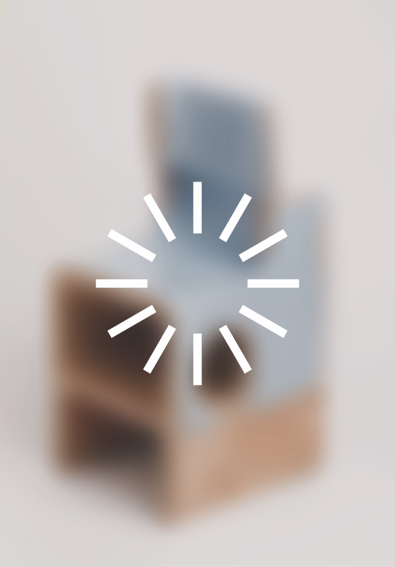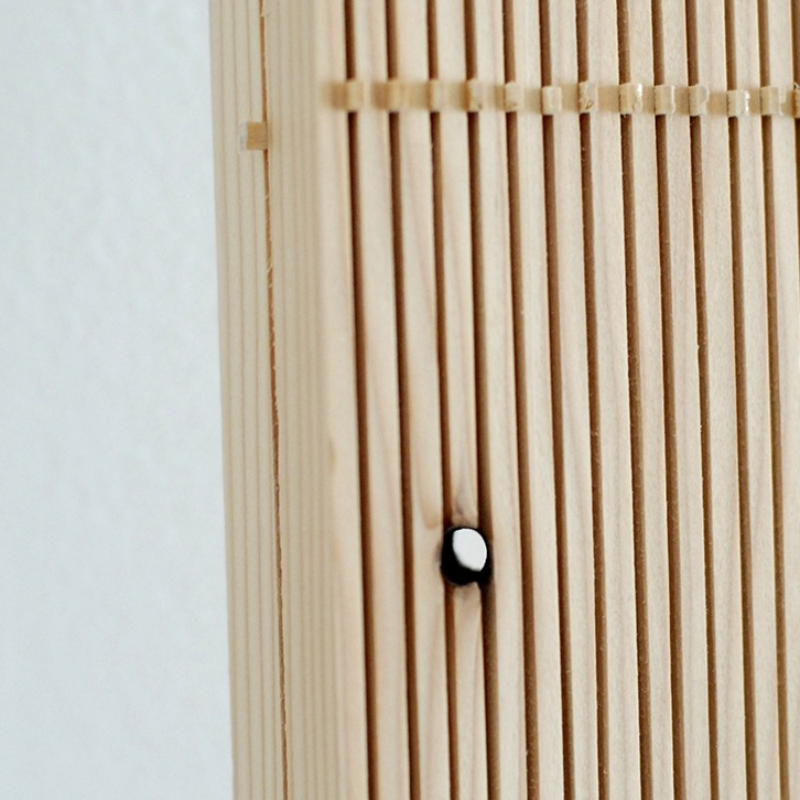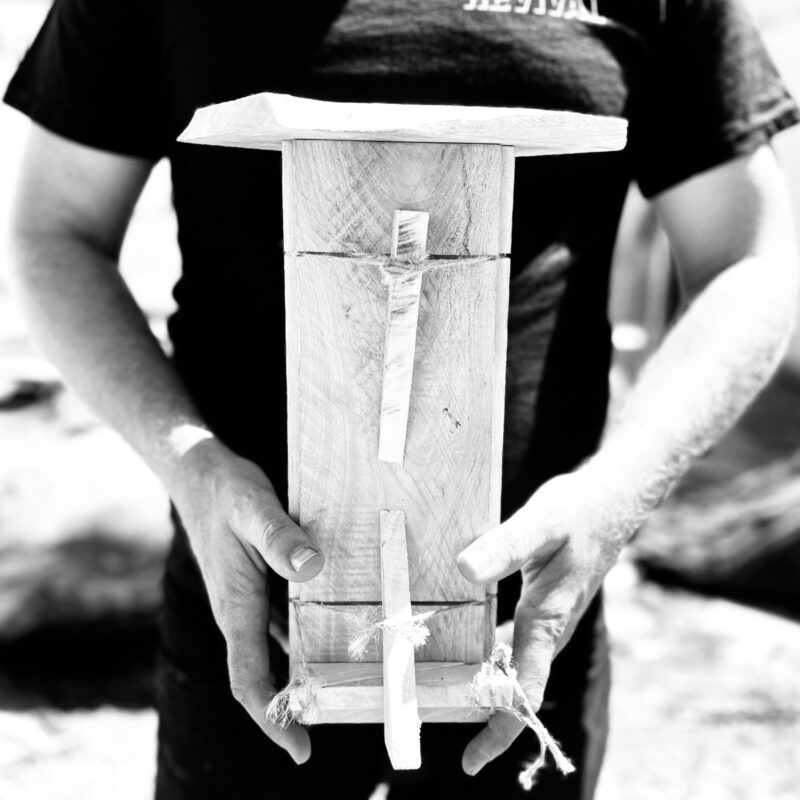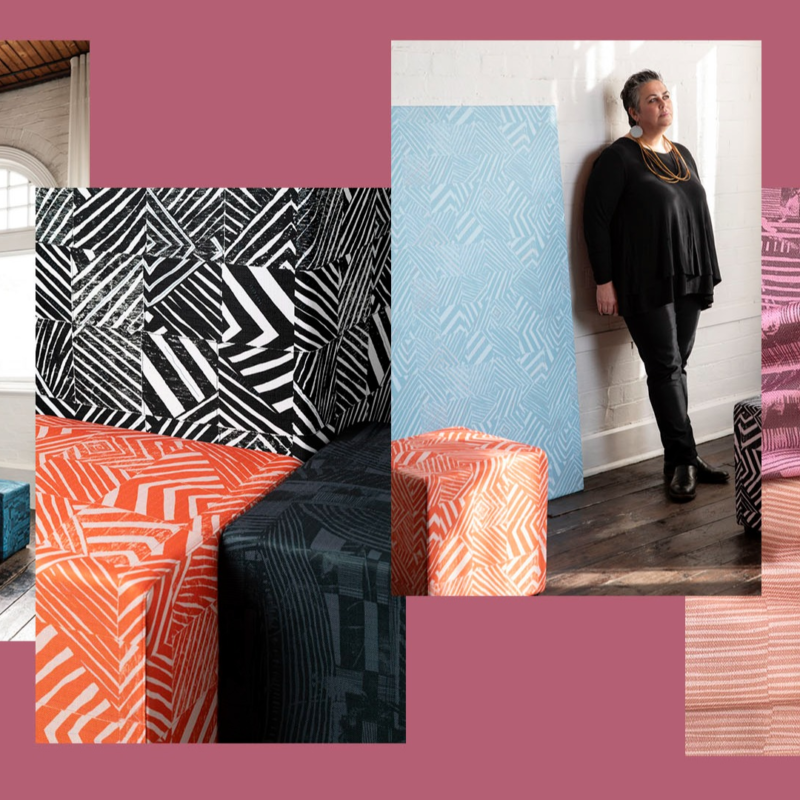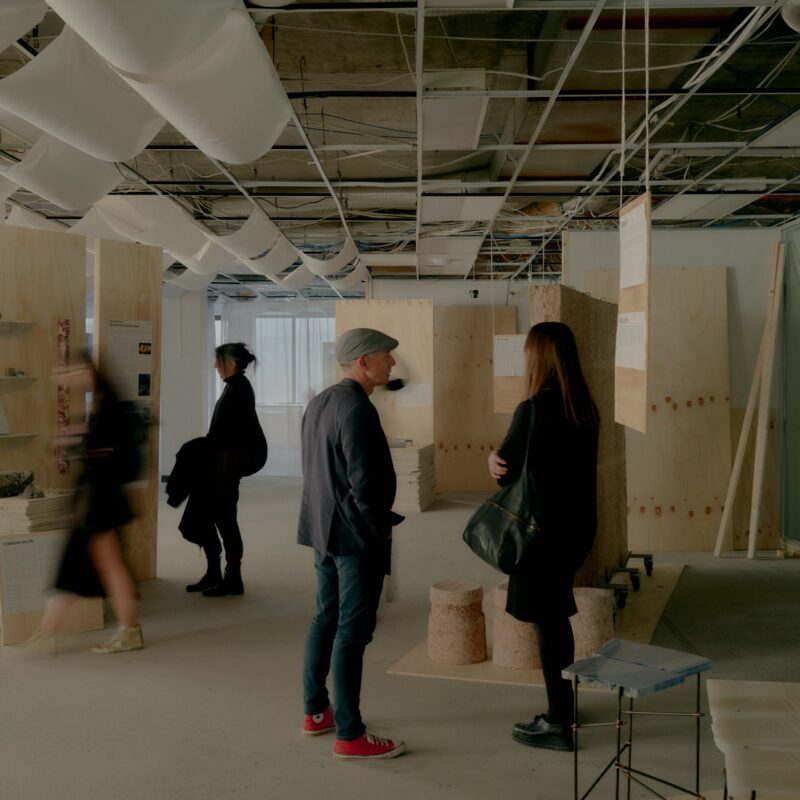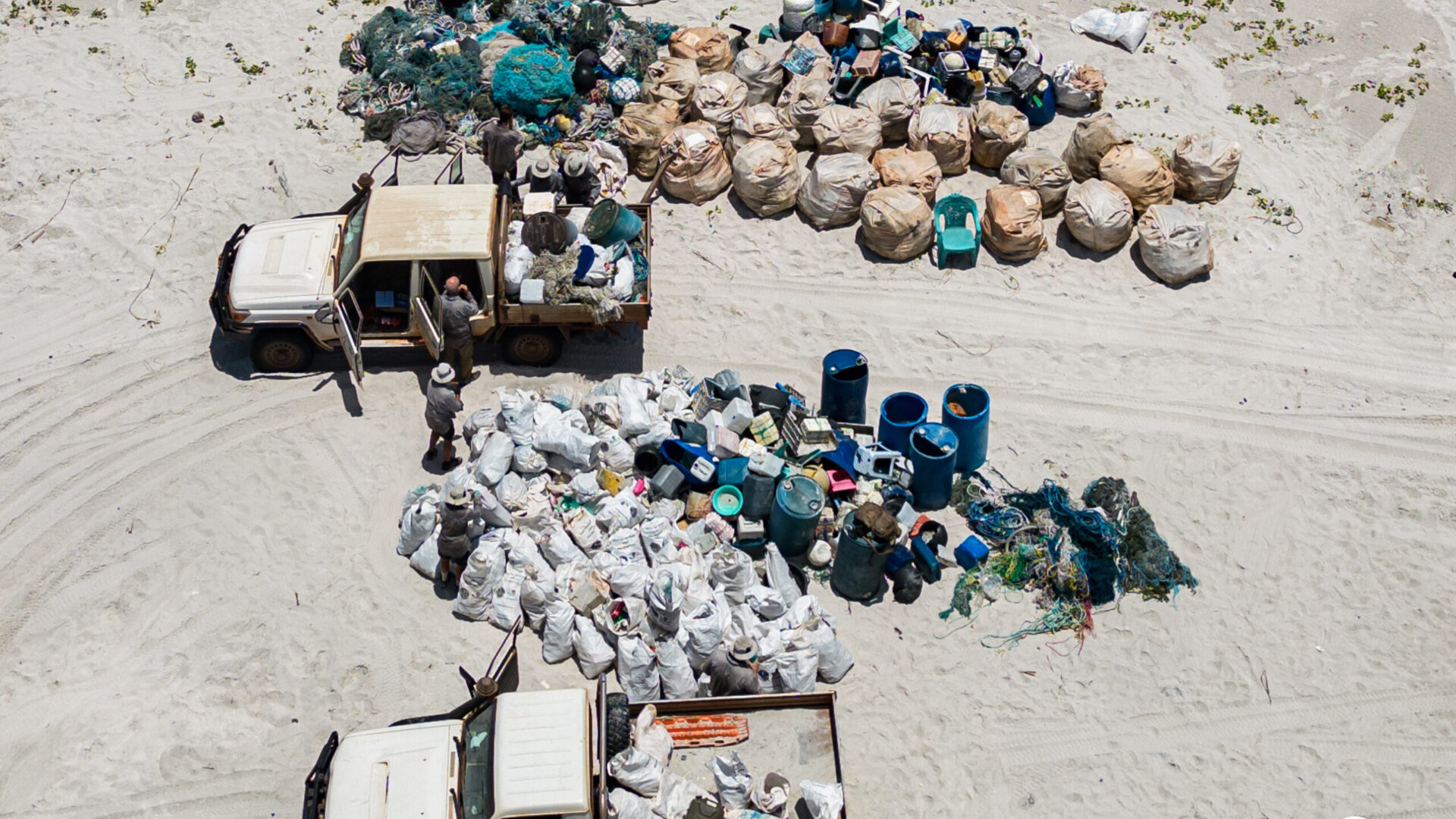
Rubbish on the Shore | Symposium Past Event
Tickets
Date
Venue
Access
Accessible bathroom, All gender bathroom, Seating available, Wheelchair accessibleRubbish on the Shore is a cross-cultural think-tank that explores design solutions for ghost net and associated marine debris impacting Indigenous communities and Sea Country across Northern Australia.
The Rubbish on the Shore | Symposium event follows a three-day think-tank on Miwatj Country with Indigenous leaders from over 20 First Nations rangers groups, and a delegation of experts from educational institutions, professionals working within the design and architecture sectors, material scientists, marine biologists and data analysts.
Join Agency Projects and NGV for a series of insightful conversations where we will unpack what lessons have been learned and how design thinking and collaborative conversation can seed solutions to the issues impacting Australia’s oceans and waterways.
Participants
Mayatili Marika is a Rirratjiŋu Traditional Owner and a Yolŋu woman based in northeast Arnhem Land. Part of a new generation of leadership for Yolŋu people, she is a bilingual leader and advocate who is involved in the education pipeline for aboriginal people in the region. She is the University of Melbourne’s Cultural Advisor and Partnerships Officer based in Northeast Arnhem Land and Chair of Dhimurru Aboriginal Corporation, which develops and implements culturally and environmentally appropriate resource management strategies around Nhulunbuy. From the Marika clan, Mayatili belongs to one of the great artistic and political dynasties of Australia.
Leila Gurruwiwi is a multi-talented individual with a diverse range of skills and expertise. She is a proud Yolŋu woman, originally from Galiwinku on Elcho Island in North East Arnhem Land, who grew up on Dja Dja Wurrung Country (Bendigo, Victoria). She is a media personality, a captivating presenter, a talented actor, a cultural ambassador and a knowledgeable mentor. She is an inspiration to all, particularly in her tireless efforts to create a safe environment for minority groups. Leila is the Public Programs lead at Agency Projects where she works to create opportunities for First Nations perspectives to be heard by a wider audience.
Andrew Simpson is the founder and director of Sydney-based industrial design house Vert and has designed a vast range of products over its eighteen years of operation, from the intimately hand-crafted through to mass-produced industrial products. Constantly searching for meaning and value in design, Andrew’s approach considers human connection. His experimental work in the studio has led to several innovations including the development of sustainable materials made from waste such as the iconic HuskeeCup. Since 2010, he has been director of Best Practice Plastics, specialists in injection moulding of sustainable materials and working with clients like Unilever, Nestle, Mecca Brands, Sydney Water and more. Simpson’s work has been exhibited in Australia, Europe, North America and Asia.
Georgia Birks is an associate editor at Architecture Media, a graduate of architecture and a proud descendant of the Birpai, Dunghutti and Kamilaroi people. Georgia’s experience in the built environment industry and in publishing has developed her critical eye for good design and processes. Georgia has been a juror on Australian and international architecture awards programs, written a number of reviews, curated industry conferences, participated as a guest university critic and lecturer, and has been a guest speaker on podcasts and panels across Australia. Currently, Georgia is also a curator for Design Speaks, a member of the Australian Institute of Architects’ First Nations Advisory Committee and a member of the City of Melbourne’s Design Excellence Advisory Committee.
Dr Ilya Fridman is a Lecturer in the Faculty of Art, Design and Architecture, and a member of the Emerging Technologies Research Lab at Monash University. His work explores how design can contribute to collaboratively reimagining future possibilities for sustainable development across public products, services and infrastructures. He has worked on projects covering areas of public transport, smart city technologies and public waste management.
Professor Leonie Barner is a polymer chemist and environmental scientist with a keen interest in circular economy and reducing the environmental burden of plastics. She currently works at the Queensland University of Technology (QUT) and was the research director of QUT’s Centre for a Waste-Free World. Presently, her research is covering polymer and material synthesis, life cycle assessment, as well as the development and application of circular economy principles to support sustainable development.
Sarah Lynn Rees is a Palawa woman descending from the Trawlwoolway people of north-east Tasmania. She is a Lecturer at Monash University, Associate Principal at Jackson Clements Burrows Architects (JCBA) where she is also a Lead Indigenous Advisor: Architecture and Design, a Director of Parlour: Women, Equity, Architecture, and a member of the Victorian Design Review Panel for the Office of the Victorian Government Architect and Co-Chair of the Australian Institute for Architects First Nations Advisory Working Committee.
Jeff Hansen is the Managing Director for Sea Shepherd Australia and a Director for Sea Shepherd Global. Jeff joined Sea Shepherd in 2006 to pursue his passion for marine conservation and protecting the natural world. Serving as a crew-member on two Antarctic whale defence campaigns, Jeff was instrumental in locating the illegal whaling fleet on both occasions. Since Jeff’s baptism of fire with Sea Shepherd, he has not looked back. Jeff continues to play a pivotal role in driving Sea Shepherd both nationally and globally in tackling the three key threats to our oceans: illegal fishing, plastic pollution and climate change. Jeff thinks that no matter the opposition, when ordinary people come together, extraordinary things can happen, and if there is one thing worth fighting for on this planet, it’s life.
Grahame serves as the Remote Marine Debris Campaigner for Sea Shepherd Australia. In March 2021, Grahame led the Sea Shepherd “Waves of Change” Project, organizing beach cleans, community film nights, and waste-free workshops across Southeast Queensland. Under Grahame’s leadership, Sea Shepherd’s remote clean-up program expanded significantly. He has since led teams in remote clean-ups with various Indigenous Land and Sea Ranger groups, including Anindilyakwa, Mapoon, Tiwi, and Dhimurru. In 2024, Grahame added a remote clean up at Elcho Island this year with the Gumurr Marthakal Rangers making this our biggest year for remote clean ups yet.
Date
Tickets
Venue
Access
Accessible bathroom, All gender bathroom, Seating available, Wheelchair accessibleRubbish on the Shore is a cross-cultural think-tank that explores design solutions for ghost net and associated marine debris impacting Indigenous communities and Sea Country across Northern Australia.
The Rubbish on the Shore | Symposium event follows a three-day think-tank on Miwatj Country with Indigenous leaders from over 20 First Nations rangers groups, and a delegation of experts from educational institutions, professionals working within the design and architecture sectors, material scientists, marine biologists and data analysts.
Join Agency Projects and NGV for a series of insightful conversations where we will unpack what lessons have been learned and how design thinking and collaborative conversation can seed solutions to the issues impacting Australia’s oceans and waterways.
Participants
Mayatili Marika is a Rirratjiŋu Traditional Owner and a Yolŋu woman based in northeast Arnhem Land. Part of a new generation of leadership for Yolŋu people, she is a bilingual leader and advocate who is involved in the education pipeline for aboriginal people in the region. She is the University of Melbourne’s Cultural Advisor and Partnerships Officer based in Northeast Arnhem Land and Chair of Dhimurru Aboriginal Corporation, which develops and implements culturally and environmentally appropriate resource management strategies around Nhulunbuy. From the Marika clan, Mayatili belongs to one of the great artistic and political dynasties of Australia.
Leila Gurruwiwi is a multi-talented individual with a diverse range of skills and expertise. She is a proud Yolŋu woman, originally from Galiwinku on Elcho Island in North East Arnhem Land, who grew up on Dja Dja Wurrung Country (Bendigo, Victoria). She is a media personality, a captivating presenter, a talented actor, a cultural ambassador and a knowledgeable mentor. She is an inspiration to all, particularly in her tireless efforts to create a safe environment for minority groups. Leila is the Public Programs lead at Agency Projects where she works to create opportunities for First Nations perspectives to be heard by a wider audience.
Andrew Simpson is the founder and director of Sydney-based industrial design house Vert and has designed a vast range of products over its eighteen years of operation, from the intimately hand-crafted through to mass-produced industrial products. Constantly searching for meaning and value in design, Andrew’s approach considers human connection. His experimental work in the studio has led to several innovations including the development of sustainable materials made from waste such as the iconic HuskeeCup. Since 2010, he has been director of Best Practice Plastics, specialists in injection moulding of sustainable materials and working with clients like Unilever, Nestle, Mecca Brands, Sydney Water and more. Simpson’s work has been exhibited in Australia, Europe, North America and Asia.
Georgia Birks is an associate editor at Architecture Media, a graduate of architecture and a proud descendant of the Birpai, Dunghutti and Kamilaroi people. Georgia’s experience in the built environment industry and in publishing has developed her critical eye for good design and processes. Georgia has been a juror on Australian and international architecture awards programs, written a number of reviews, curated industry conferences, participated as a guest university critic and lecturer, and has been a guest speaker on podcasts and panels across Australia. Currently, Georgia is also a curator for Design Speaks, a member of the Australian Institute of Architects’ First Nations Advisory Committee and a member of the City of Melbourne’s Design Excellence Advisory Committee.
Dr Ilya Fridman is a Lecturer in the Faculty of Art, Design and Architecture, and a member of the Emerging Technologies Research Lab at Monash University. His work explores how design can contribute to collaboratively reimagining future possibilities for sustainable development across public products, services and infrastructures. He has worked on projects covering areas of public transport, smart city technologies and public waste management.
Professor Leonie Barner is a polymer chemist and environmental scientist with a keen interest in circular economy and reducing the environmental burden of plastics. She currently works at the Queensland University of Technology (QUT) and was the research director of QUT’s Centre for a Waste-Free World. Presently, her research is covering polymer and material synthesis, life cycle assessment, as well as the development and application of circular economy principles to support sustainable development.
Sarah Lynn Rees is a Palawa woman descending from the Trawlwoolway people of north-east Tasmania. She is a Lecturer at Monash University, Associate Principal at Jackson Clements Burrows Architects (JCBA) where she is also a Lead Indigenous Advisor: Architecture and Design, a Director of Parlour: Women, Equity, Architecture, and a member of the Victorian Design Review Panel for the Office of the Victorian Government Architect and Co-Chair of the Australian Institute for Architects First Nations Advisory Working Committee.
Jeff Hansen is the Managing Director for Sea Shepherd Australia and a Director for Sea Shepherd Global. Jeff joined Sea Shepherd in 2006 to pursue his passion for marine conservation and protecting the natural world. Serving as a crew-member on two Antarctic whale defence campaigns, Jeff was instrumental in locating the illegal whaling fleet on both occasions. Since Jeff’s baptism of fire with Sea Shepherd, he has not looked back. Jeff continues to play a pivotal role in driving Sea Shepherd both nationally and globally in tackling the three key threats to our oceans: illegal fishing, plastic pollution and climate change. Jeff thinks that no matter the opposition, when ordinary people come together, extraordinary things can happen, and if there is one thing worth fighting for on this planet, it’s life.
Grahame serves as the Remote Marine Debris Campaigner for Sea Shepherd Australia. In March 2021, Grahame led the Sea Shepherd “Waves of Change” Project, organizing beach cleans, community film nights, and waste-free workshops across Southeast Queensland. Under Grahame’s leadership, Sea Shepherd’s remote clean-up program expanded significantly. He has since led teams in remote clean-ups with various Indigenous Land and Sea Ranger groups, including Anindilyakwa, Mapoon, Tiwi, and Dhimurru. In 2024, Grahame added a remote clean up at Elcho Island this year with the Gumurr Marthakal Rangers making this our biggest year for remote clean ups yet.
